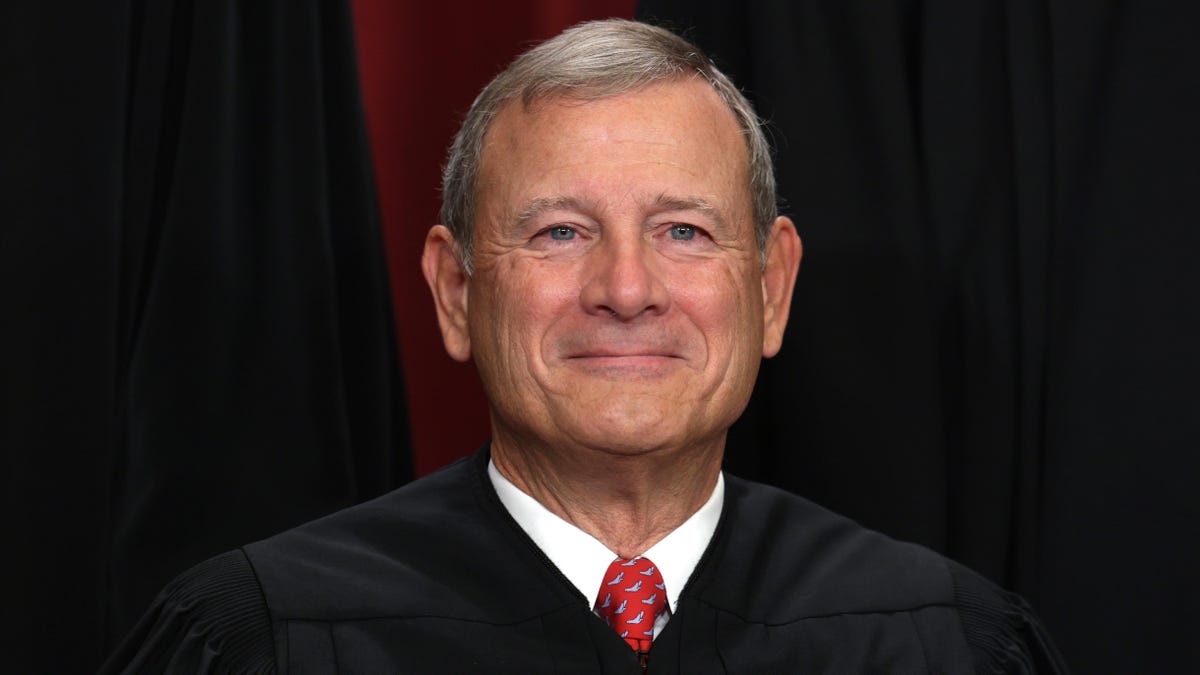The U.S. Supreme Court pushed lower courts to take another look at two laws in Florida and Texas that would have stopped social media companies from removing extremist content or accounts in a decision Monday that’s widely being regarded as reasonable. But the court also delivered a much less reasonable decision Monday, finding that former presidents like Donald Trump are immune from prosecution for “official acts,” a term the court opted not to define.
Florida and Texas passed strange new laws in 2021 after President Donald Trump’s coup attempt at the U.S. Capitol that would have stopped social media companies from policing extremist content on their platforms. Conservatives got the laws passed because they insisted private companies like Meta and Twitter shouldn’t be allowed to remove such content, which they claim was “censorship.”
The tech companies, represented by an industry group named in the case called NetChoice, pointed out that stopping social media platforms from moderating content on their own platforms was a clear violation of the First Amendment, which protects citizens from censorship by the government, but also allows any person (or company, in this case) to not associate with content they find deplorable. If state laws in Florida and Texas force platforms to publish content they don’t like that’s just as much an intervention by the government than any “censorship” of a private individual might be, as the argument goes.
“Today, we vacate both decisions for reasons separate from the First Amendment merits, because neither court of appeals properly considered the facial nature of NetChoice’s challenge,” Justice Elena Kagan wrote in the decision.
“The courts mainly addressed what the parties had focused on,” Kagan wrote. “And the parties mainly argued these cases as if the laws applied only to the curated feeds offered by the largest and most paradigmatic social-media platforms—as if, say, each case presented an as-applied challenge brought by Facebook protesting its loss of control over the content of its News Feed. But argument in this Court revealed that the laws might apply to, and differently affect, other kinds of websites and apps.”
Monday’s ruling will force the cases to be retried and the Knight First Amendment Institute celebrated the decision. The organization’s executive director, Jameel Jaffer, called the ruling “careful and considered” that “decisively rejects the broadest arguments made by the states and the social media platforms.”
“The social media companies asked for a sweeping ruling that would have placed their business models beyond the reach of regulation,” Jaffer said in a statement published online. “The states asked for a ruling that would have given them immense power to manipulate and control public discourse online. The Court was entirely right to reject these requests, both of which would have done real harm to our democracy.”
But another ruling on Monday about whether President Donald Trump enjoys immunity from prosecution was less great for people who care about the country’s future more broadly.
As the tech law scholar and professor at USF School of Law, Tiffany C. Li, wrote on Bluesky, “On one hand, the SCOTUS cases on internet speech turned out OK. On the other hand, the cases on, like, whether the United States can continue to function as a democracy? Less OK.”
The immunity decision, which was decided 6-3 along ideological lines, specifically paints Trump’s attempt at interfering with the vote tally on January 6, 2021, as an official act. How can that be? Because, as Chief Justice Roberts wrote in the majority opinion, the president and vice president were talking about “official conduct” on that day.
“Whenever the President and Vice President discuss their official responsibilities, they engage in official conduct. Presiding over the January 6 certification proceeding at which Members of Congress count the electoral votes is a constitutional and statutory duty of the Vice President,” the opinion reads.
Justice Sotomayor wrote a scathing dissent that explained how after this ruling presidents are “now a king above the law.”
When he uses his official powers in any way, under the majority’s reasoning, he now will be insulated from criminal prosecution. Orders the Navy’s Seal Team 6 to assassinate a political rival? Immune. Organizes a military coup to hold onto power? Immune. Takes a bribe in exchange for a pardon? Immune. Immune, immune, immune.
Sotomayor wasn’t just bringing up Seal Team 6 in a random or flippant way. A lower court already asked that question, and one of Trump’s lawyers tried to argue that a president could indeed assassinate a political opponent using Seal Team 6 and be immune from prosecution for it as long as he wasn’t impeached by Congress over the act. Sotomayor also wasn’t just floating a hypothetical when talking about staging a coup. That’s quite literally what Jan, 6 was all about. And her final line from her dissent summed it all up: “With fear for our democracy, I dissent.”
This is a very bad place for a country to be, of course. Especially as the leader of the opposing political party was more or less outed as a sundowning 81-year-old who says things like “we finally beat Medicare” completely devoid of context that would otherwise give the American people confidence that he can stand up to the neo-fascist threat. Democrats are scrambling to figure out if they can replace Biden, but nobody knows whether that will actually deliver a win.
There are precisely 127 days until Election Day and 163 days until Inauguration Day. And given the threats in front of us, we better cross our fingers and hope for the best that democratic forces deliver a win before it’s too late.
